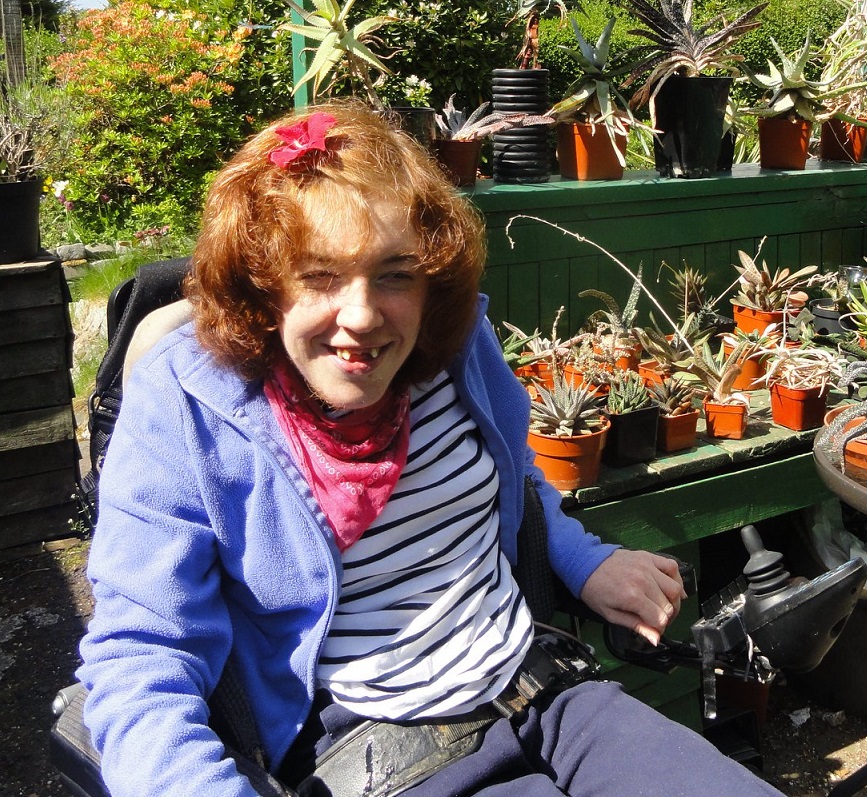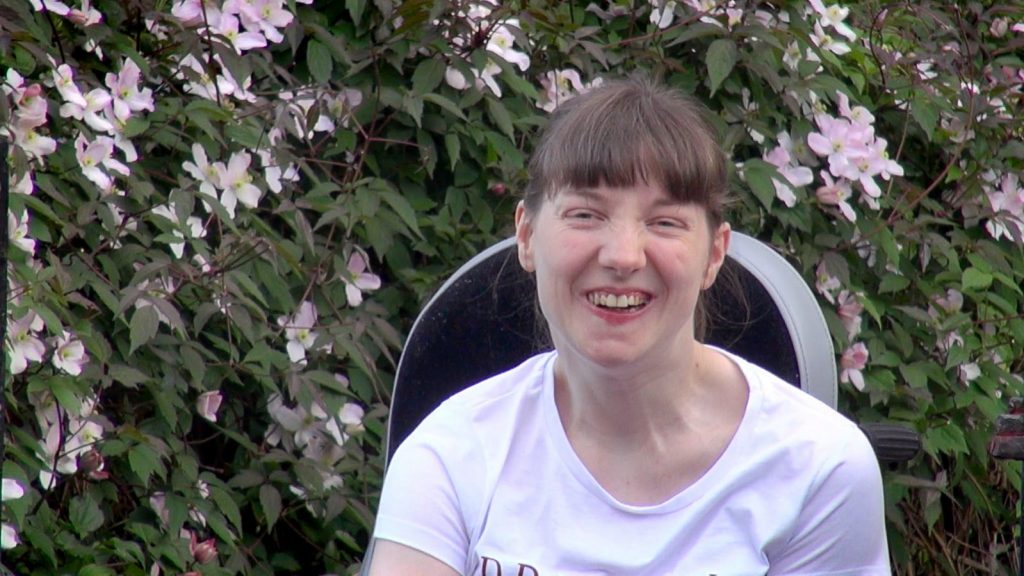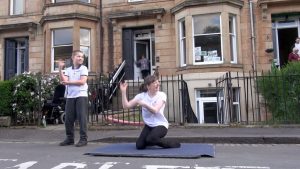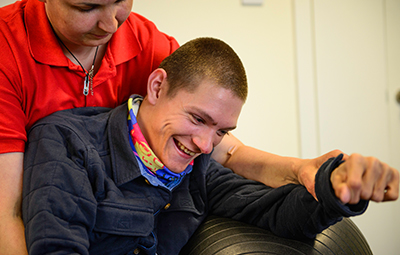What’s it really like to have in person therapy again?
 Last week, I returned to Cerebral Palsy Scotland for a therapy session with Filip. I was given an allocated time, and when you arrive at the centre, you are required to call the number of reception as a means of avoiding touching the entry button. When you enter, your temperature is taken, and you have to go straight to the therapy room. These small changes made me feel safe and content.
Last week, I returned to Cerebral Palsy Scotland for a therapy session with Filip. I was given an allocated time, and when you arrive at the centre, you are required to call the number of reception as a means of avoiding touching the entry button. When you enter, your temperature is taken, and you have to go straight to the therapy room. These small changes made me feel safe and content.
For me, it is essential when going for therapy of any kind that you are relaxed. This ensures that your therapy is as efficient as possible.
Filip, who was the therapist for the session, spent some time at the start finding out about how general life was during this time, and what could be improved in terms of Cerebral Palsy symptoms. I have been experiencing some acute nerve pain in my back for a couple of years now. I explained this to Filip, and he came up with some exercises that I could do to stretch that particular area of my back. He also gave me some preventative measures to take to help protect my lower back. For example, he suggested that I should try and build up my upper back alongside my abdominals as a way to compensate for the weakness in the lower back.
Most importantly, though, therapy felt NORMAL. Aside from the safety measures that were implementing the session felt as uplifting as ever. Filipe took the time to understand and assess what my needs were from the session and provided me with the tools required to achieve my goals in terms of my back injury. The explanation he offered about everything I asked was great for me as I like to have an in-detail understanding of why certain things happen. I got a lot from the session, and I am confident, in time, that the exercises that were provided to me will support me in the longer term. Filip assured me that if I have any questions or difficulties he is only a phone call or email away.
Personally, the therapy session was the most positive enjoyable experience that I have experienced since the commencement of the ‘lockdown’.
I would encourage anyone that needs a therapy session and feels well enough to do so to get in contact. The centre is there to provide support to those who need it. The centre is exceptionally safe, and anyone should not be concerned about attending, given the current COVID-19 circumstances. I want to take this opportunity to express my gratitude to Filip and all the Cerebral Palsy Scotland staff for all the help that they have provided me with recently and for the past 22 years.





